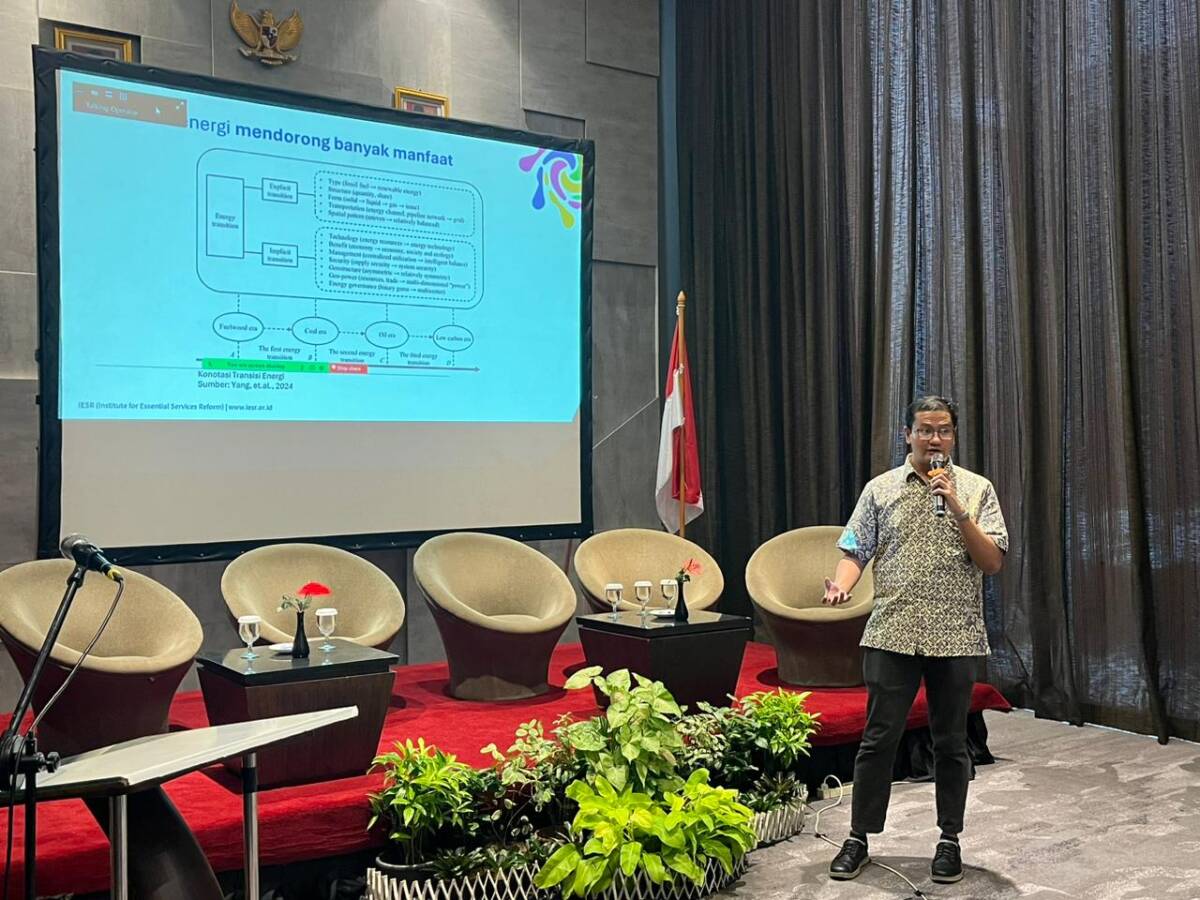Jakarta, 25 July 2024 – A just transition in Indonesia currently does not have a mutually agreed definition. The absence of this definition has resulted in uncertainty and a lack of uniformity in the focus of just transition initiatives and movements.
The availability of an operational definition is expected to maximize the opportunities for energy transition and address various challenges of energy transition and potential problems that may arise during the transition process.
Wira Agung Swadana, Green Economy Project Manager of the Institute for Essential Services Reform (IESR) emphasized the importance for Indonesia to compile and agree on a definition of a just transition.
“The energy transition has a broad and multi-sectoral spectrum. With an operational definition of a just transition, all energy transition initiatives will have the same guidelines,” said Wira.
IESR has compiled an operational definition of a just transition, namely the process of transitioning to a low-carbon system that addresses economic problems, mitigates potential problems that may arise, and is beneficial and does not cause significant harm to related parties. All of this is done with an economic, socio-economic, and environmental approach.
Suraya Afif, a lecturer in anthropology at FISIP UI, explained that a just transition is a vision for the future for a better (energy) system for everyone. Therefore, everyone’s participation is needed to make it happen.
“The current challenge is to convince everyone of this vision or imagination, so that this movement or demand can be realized,” she said.
The energy transition also needs to mainstream the concept of Gender, Disability, and Social Inclusion (GEDSI) in its implementation. This was conveyed by Mouna Wasef, Head of the Research and Advocacy Division of Publish What You Pay (PWYP) Indonesia.
“Integration of GEDSI can be done through community involvement, capacity building, women’s participation, and representatives of other vulnerable groups for decision-making, financial support and incentives,” said Mouna.
In addition to vulnerable and disabled groups, workers will also be affected by the energy transition. Royanto Purba, General Chairperson of the Blue Collar Workers Union (FSP), All Indonesia Workers Union explained that the workers’ perspective in viewing the just transition is optimistic. Therefore, according to him, this good perception needs to be maintained through a policy mechanism that accommodates the interests of these workers, namely the sustainability of livelihoods.
“The current workers’ perspective views transition as a concept to deal with climate change, a tool to ensure sustainability for the next generation, and workers’ hopes for employment and economic growth. Therefore, this aspect of justice must be truly implemented, not just recommended,” said Royanto.
Royanto also proposed the formation of a national tripartite council on just transition consisting of the government, employers, workers/laborers, as well as harmonization and alignment of policies by considering the just transition. To complete this planning process, there needs to be a labor roadmap to provide direction for workers in facing the just energy transition.

